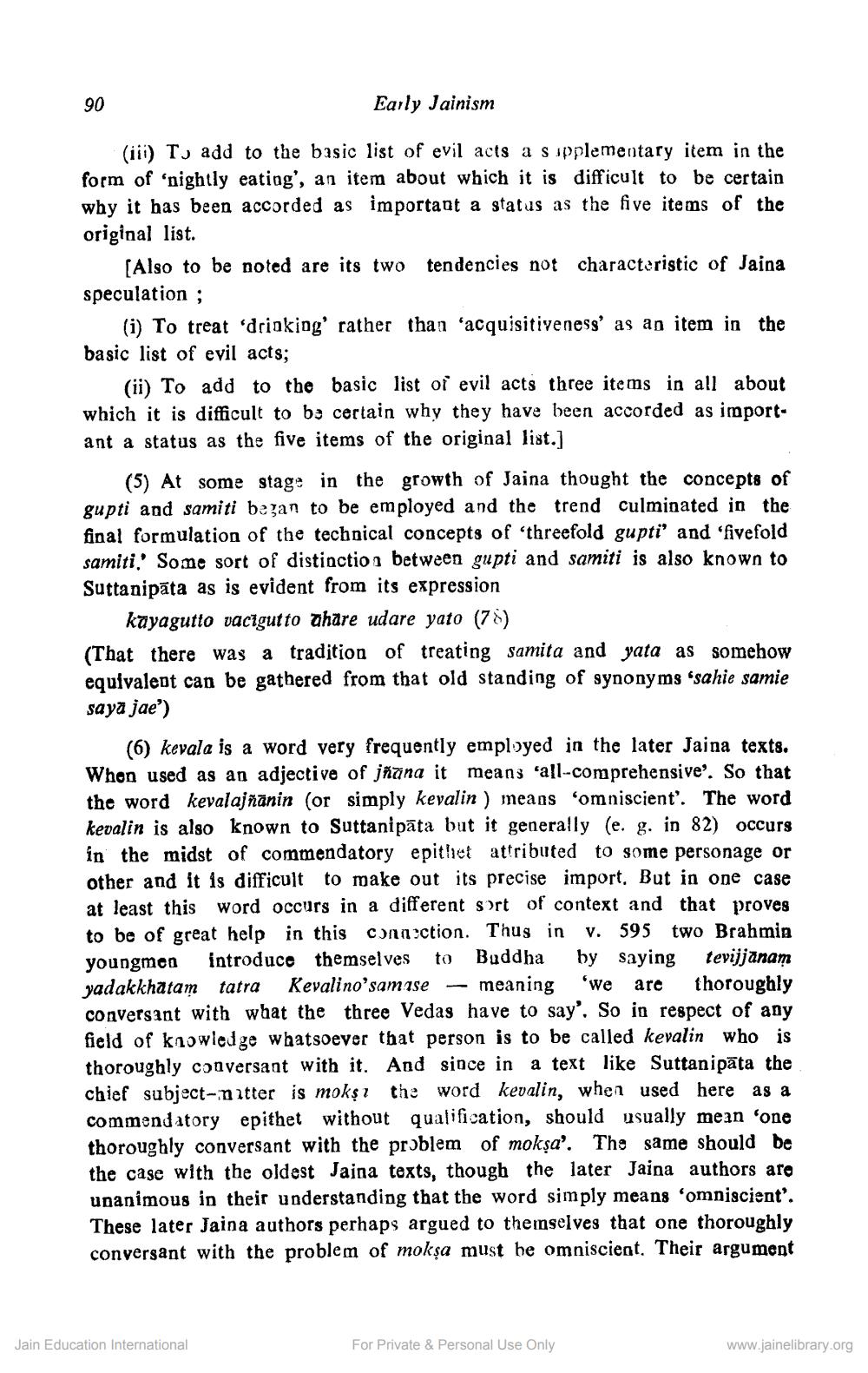________________
90
Early Jainism
(iii) To add to the basic list of evil acts a supplementary item in the form of 'nightly eating', an item about which it is difficult to be certain why it has been accorded as important a status as the five items of the original list.
[Also to be noted are its two tendencies not characteristic of Jaina speculation;
(i) To treat 'drinking' rather than 'acquisitiveness' as an item in the basic list of evil acts;
(ii) To add to the basic list of evil acts three items in all about which it is difficult to be certain why they have been accorded as important a status as the five items of the original list.]
(5) At some stage in the growth of Jaina thought the concepts of gupti and samiti began to be employed and the trend culminated in the final formulation of the technical concepts of 'threefold gupti' and 'fivefold samiti. Some sort of distinction between gupti and samiti is also known to Suttanipata as is evident from its expression
kayagutto vacigutto ahare udare yato (78)
(That there was a tradition of treating samita and yata as somehow equivalent can be gathered from that old standing of synonyms 'sahie samie saya jae')
(6) kevala is a word very frequently employed in the later Jaina texts. When used as an adjective of jñana it means 'all-comprehensive'. So that the word kevalajñānin (or simply kevalin) means 'omniscient'. The word kevalin is also known to Suttanipata but it generally (e. g. in 82) occurs in the midst of commendatory epithet attributed to some personage or other and it is difficult to make out its precise import. But in one case at least this word occurs in a different sort of context and that proves to be of great help in this connection. Thus in v. 595 two Brahmin to introduce themselves Buddha by saying youngmen tevijjanam Kevalino'samase yadakkhatam tatra meaning 'we are thoroughly conversant with what the three Vedas have to say'. So in respect of any field of knowledge whatsoever that person is to be called kevalin who is thoroughly conversant with it. And since in a text like Suttanipata the chief subject-matter is moks the word kevalin, when used here as a commendatory epithet without qualification, should usually mean 'one thoroughly conversant with the problem of mokṣa'. The same should be the case with the oldest Jaina texts, though the later Jaina authors are unanimous in their understanding that the word simply means 'omniscient'. These later Jaina authors perhaps argued to themselves that one thoroughly conversant with the problem of mokṣa must be omniscient. Their argument
Jain Education International
-
For Private & Personal Use Only
www.jainelibrary.org




